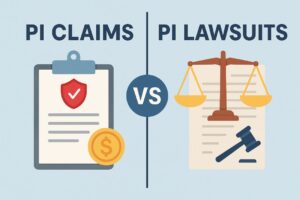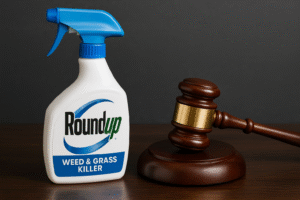The controversy matters because charters serve as franchise-like guarantees in NASCAR’s business model. A charter gives a team a guaranteed place in every Cup Series race and locks in baseline purse money connected to performance and participation. The charter sale completed by BK Racing carried undisclosed complications and involved a prior pledge of the same asset as collateral. The conflict moved straight into bankruptcy court and later into federal litigation. The episode leaves buyers questioning disclosure standards, the strength of due diligence checks, and the real exposure tied to NASCAR charter transactions.
How the Lawsuit Started
Buyers believed they were purchasing a clean charter. But behind the scenes, BK Racing had pledged the same charter as collateral for a loan. That fact did not show up in the public sale. Bankruptcy proceedings later revealed the lien and loan obligations. That disclosure — or lack of it — triggered legal action from lenders and eventually a lawsuit from FRM against BK Racing’s owners.
Background of the Case
BK Racing’s financial collapse culminated in liquidation in 2018. Court-appointed trustees oversaw asset sales. FRM purchased most of BK Racing’s remaining assets — including the charter — at bankruptcy auction for US$2.08 million, outbidding other bidders. The acquisition did not include other encumbered obligations. The idea: FRM would assume a clean charter and continue operations. FRM said it planned to run BK’s chartered assets, handle equipment integration, and possibly run a third car — though it later acknowledged challenges securing sponsorship for expansion.
Meanwhile, the lender that had the original lien on the charter — Union Bank & Trust — asserted its rights. This triggered lawsuits over whether the charter sale was valid given outstanding debts, liens, and collateral pledges.
Trustees also uncovered more serious financial misconduct. Court filings alleged that BK Racing owners had diverted funds through corporate shell companies and family trusts to siphon money away from the team. That misconduct formed the basis for larger civil judgments beyond the charter dispute.
Key Allegations
Plaintiff (FRM) alleged that BK Racing sold the charter without disclosing existing liens and loan obligations. That sale violated promises of a clean transfer. The allegation emphasized that the charter was collateral at the time of sale.
Bankruptcy-court trustees and lenders alleged that BK Racing’s ownership engaged in fraudulent transfers. They pointed to the use of family trusts and shell corporations as tools to hide assets. Improper payroll tax handling and diversion of team funds were also alleged.
Court judgments show that the original owners failed to honor their financial and disclosure obligations. A civil judgment of about US$31 million was entered against owner Ron Devine and his partner after bankruptcy misconduct findings. A separate judgment required payment of US$2.5 million — covering the charter sale dispute, legal fees, and related costs.
Timeline of the BK Racing Charter Deal Lawsuit
Early Complaints and Consumer Signals
BK Racing began operations in 2012. The 2016 introduction of the NASCAR charter system allowed teams to buy and sell guaranteed spots in races. BK Racing sold one of its charters to Front Row Motorsports for about US$2 million that year. Behind the scenes, the charter had already been pledged as collateral for a loan — a fact not disclosed in the sale.
Company Response
BK Racing did not publicly speak to the undisclosed lien at the time of sale. Public statements at the time indicated a clean transfer. Front Row Motorsports assumed the charter with the expectation of unencumbered rights.
Court Filings and Legal Steps
Bankruptcy proceedings starting in 2018 led to asset liquidation. Front Row Motorsports acquired BK Racing assets — including the charter — via bankruptcy auction for US$2.08 million. Lenders and trustees pressed claims that questioned the sale’s legitimacy because the charter carried earlier liens and unresolved loan duties. Civil filings also targeted BK Racing’s ownership and outlined accusations of fraudulent transfers and broader financial misconduct.
Judge rulings followed. A judgment for US$31 million was entered against the owner for misuse of funds and failure to satisfy bankruptcy-related obligations. A separate ruling required the former owner to pay US$2.5 million — covering the disputed charter sale, attorney fees, and other costs.
Judge Notes or Judicial Signals
Appeals courts reviewed the 2.5 million judgment. In April 2025, a federal appeals court upheld the judgment against the former NASCAR team owner. The court noted that the sale proceeded without disclosure of collateral and thus the sale terms breached contractual and bankruptcy obligations.
Government or Regulatory Actions
Settlement Timeline
No conventional “settlement” occurred. Courts imposed judgments. Civil judgments stand. Bankruptcy trustee actions concluded with liquidation and asset sale.
Current Status
BK Racing no longer operates. Its assets and charters belong to Front Row Motorsports. The former owner owes roughly US$31 million from a civil judgment. An additional US$2.5 million judgment related to a charter dispute remains in effect.
Additional Case Details
Bankruptcy records showed misuse of shell companies and family trusts to divert more than US$6.4 million from the team. That finding was central to the large civil judgment. Bankruptcy liquidation auction drew multiple bidders. Front Row Motorsports’ bid outpriced another leading bidder. Front Row Motorsports at the time noted difficulty integrating assets — including combining Toyota-based equipment from BK with its own Ford operations. Lenders argued that the charter was never legally free to be sold because it was collateral. That point proved decisive in court.
Final Summary
Muhammad Suleman Ahmad is a content writer covering lawsuits, legal explainers, and court-related topics for LawsuitDeck.com. His work is structured for clarity and general understanding.


